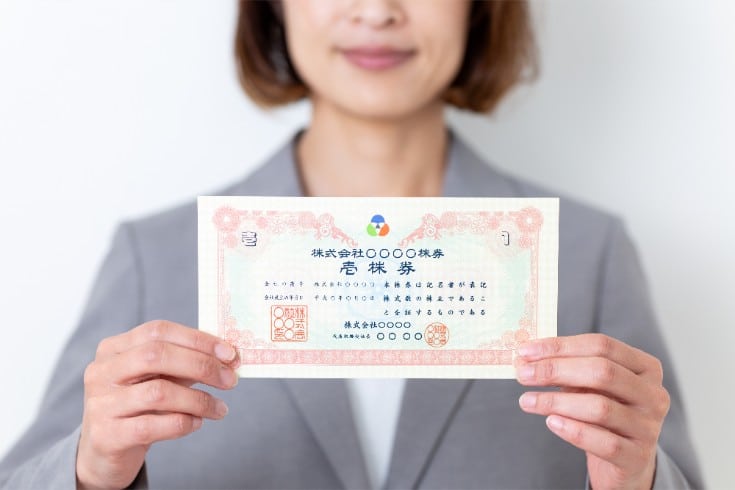Explaining How to Write a Resignation Agreement That Won't Be Rejected and Key Points to Conclude It

When an employee resigns, various risks can arise. These can include unjust monetary claims, leakage or misuse of company information and know-how, and other issues that can escalate into significant problems that cannot be overlooked by the company.
In order to avoid such risks, it is effective to conclude a resignation agreement between the company and the employee.
In this article, we will explain the benefits of concluding a resignation agreement, its contents, and points to note when concluding one.
What is a Retirement Agreement?

A retirement agreement may be concluded between a company and an employee at the time of the employee’s retirement.
The purpose of concluding a retirement agreement is to prevent any trouble from arising between the company and the retired employee after retirement.
Once an employee retires, it is generally not possible to bind the employee by an employment contract. Therefore, a retirement agreement is concluded to bind the retired employee and avoid trouble.
Difference between Voluntary Retirement and Dismissal
Voluntary retirement is when the company and the employee mutually agree to terminate the employment contract. Dismissal, on the other hand, is when the company unilaterally terminates the employment contract without the employee’s consent.
Since dismissal is carried out unilaterally by the company, it tends to invite resistance from employees. Unlike voluntary retirement, dismissal requires a justifiable reason under the Japanese Labor Contract Law. If a justifiable reason is not recognized, there is a possibility that the dismissal may be judged invalid by a lawsuit.
Therefore, if you want an employee to retire, it is preferable to do so by voluntary retirement rather than dismissal. Retirement agreements are typically exchanged when voluntary retirement is carried out.
Benefits of Concluding a Resignation Agreement

The benefits of concluding a resignation agreement are mutual for both the company and the resigning employee.
Benefits for the Company
There are two main benefits for the company.
The first is the ability to prevent unjust monetary claims from resigned employees, such as unpaid wages or overtime pay.
There may be instances where a resigned employee makes a claim for money that the company is not obligated to pay. In such cases, the company must expend time and human resources to address the issue. Furthermore, if the situation escalates to litigation, potential financial costs such as attorney fees may arise. Therefore, being able to prevent such claims in advance is a benefit for the company.
The second benefit is the ability to prevent the company’s know-how from leaking to third parties by stipulating confidentiality and non-competition obligations in the resignation agreement.
Protecting the company’s know-how is crucial, and being able to prevent its leakage is a benefit for the company.
Benefits for the Employee
There are two main benefits for the employee.
The first is the ability to clarify monetary payment relationships, such as unpaid wages, by stipulating clauses regarding these payments.
By clearly defining the payment timing and amount in the resignation agreement, it can alleviate concerns about whether unpaid wages, unpaid overtime pay, and severance pay will be properly paid.
The second benefit is that the reason for leaving the company is stated in the resignation agreement.
Whether the resignation is voluntary or due to the company’s circumstances can affect the timing of unemployment insurance benefits. Therefore, having the reason for leaving stated in the agreement is a benefit for the employee.
Contents of the Resignation Agreement

The contents of the resignation agreement are determined by the relationship between the company and the retiring employee. Therefore, while it varies on a case-by-case basis, the following contents are often included:
- Clauses related to the payment of unpaid wages, unpaid overtime, and retirement benefits
- Clauses related to the reason for leaving
- Clauses related to legal responsibilities
- Clauses related to confidentiality obligations
- Clauses related to non-competition obligations
Provisions Regarding Unpaid Wages, Unpaid Overtime, and Severance Payments
Provisions regarding unpaid wages, unpaid overtime, and severance payments may stipulate whether the company is recognized as having an obligation to pay money, and if so, how much and by when the payment should be made. For example, the following provisions could be considered for unpaid wages, unpaid overtime, and severance payments.
Article ○
Party B shall pay Party A by transferring the final salary for the period from ○ month ○ day to ○ month ○ day, and the severance payment of ○○○○ yen to the following account by the ○ day of ○ month in the Reiwa ○ year (Gregorian calendar year: 20XX).
○○ Bank, ○○ Branch
Regular Savings Account Number: ○○○○○○○
Account Holder: ○○○○○○○
About the Clause on Reasons for Leaving
Typically, the clause on reasons for leaving specifies whether the termination of employment is due to the company’s circumstances or the employee’s personal reasons. For instance, a clause like the following could be considered.
Article ○
The termination of the employment contract in the previous article is confirmed to be a mutually agreed resignation between both parties.
Provisions Regarding Legal Liability
In a retirement agreement, there may be provisions regarding legal liability in case of violation of the contents of the retirement agreement. The following are examples of provisions regarding legal liability.
Article ○
1. Party A may revoke the retirement agreement if Party B fails to pay the final salary and retirement allowance as stipulated in Article ○. In this case, Party A shall treat Party B as if they did not retire, and Party B shall revoke the salary resignation order dated on the ○th day of the ○th month of Reiwa ○ year (Gregorian calendar year: ○), and pay a monthly wage of ○○ ten thousand yen to Party A. The said wage cannot be reduced for the next two years.
2. If the retirement agreement is revoked based on the provisions of the preceding paragraph, Party B may revoke the exemption from repayment stipulated in Article ○.
3. If Party A violates the provisions of Article ○, Party B may demand the return of the retirement allowance stipulated in Article ○ from Party A.
Article ○
Party A and Party B shall mutually confirm that there are no other creditor-debtor relationships other than those stipulated in this agreement, with the payment of the final salary and retirement allowance stipulated in the preceding article.
About Confidentiality Clauses
Confidentiality clauses are typically stipulated in employment contracts when entering into an employment relationship. However, there are also cases where confidentiality clauses are stipulated anew in retirement agreements. The following types of clauses can be considered for confidentiality clauses.
Article ○
Both Party A and Party B confirm that they will not disclose any matters related to this retirement, except for legitimate reasons. In addition, Party A shall not disclose any information detrimental to Party B to third parties, and they shall not defame each other in the future.
About Non-Competition Clauses
A non-competition obligation refers to the duty not to engage in competitive activities, such as moving to a competing company or conducting a business that competes on your own.
Like confidentiality clauses, non-competition clauses are often stipulated in employment contracts. However, there are also cases where a non-competition clause is stipulated anew in a resignation agreement. The following are examples of non-competition clauses.
Article ○
1. In accordance with the employment contract, work rules, and other provisions, Party A shall bear a non-competition obligation towards Party B for ○ years.
2. Party A shall not, for ○ years, move to a competing company, conduct a competing business on their own, or become an officer of a company conducting a competing business without the permission of Party B.
3. Party A shall not engage in any business activities with Party B’s existing customers listed in the appendix for ○ years.
Concluding a Resignation Agreement with Employees

A resignation agreement, as the name suggests, requires mutual consent between the company and the employee regarding its content. Therefore, there is a possibility that the employee may refuse to agree, making it impossible to conclude the resignation agreement.
Understanding the content of the resignation agreement is crucial for the employee who is resigning.
Instead of suddenly presenting the resignation agreement to the employee who is resigning, it is easier to conclude the resignation agreement by first ensuring that the employee fully understands the content of the agreement at the time of resignation, then creating the resignation agreement, and presenting it to the employee who is resigning.
Therefore, first, set up an opportunity to discuss with the employee who is resigning and seek their understanding of the content of the agreement at the time of resignation.
At that time, it is also important to explain the content of the resignation agreement in a simplified manner when presenting it, and to ensure understanding. Especially if the employee who is resigning is not familiar with the law, it is necessary to thoroughly explain the meaning of the legal terms used in the resignation agreement.
Method of Obtaining Consent in Advance
In preparation for the inability to conclude a resignation agreement, it is possible to stipulate in the employment contract matters such as confidentiality obligations and non-competition obligations that can be stipulated in the content of the employment contract in advance.
Summary: Create a Retirement Agreement to Avoid Future Risks

We have explained how to write a retirement agreement that will not be refused and the key points to consider when concluding one.
Labor disputes can unexpectedly escalate into major issues due to the prevalence of social media. However, it is entirely possible to address such risks in advance. By concluding a retirement agreement, the likelihood of avoiding labor disputes increases. Therefore, as much as possible, try to conclude a retirement agreement.
Given the need to consider the specific circumstances related to a retirement agreement, it is advisable to seek advice from a lawyer.





















